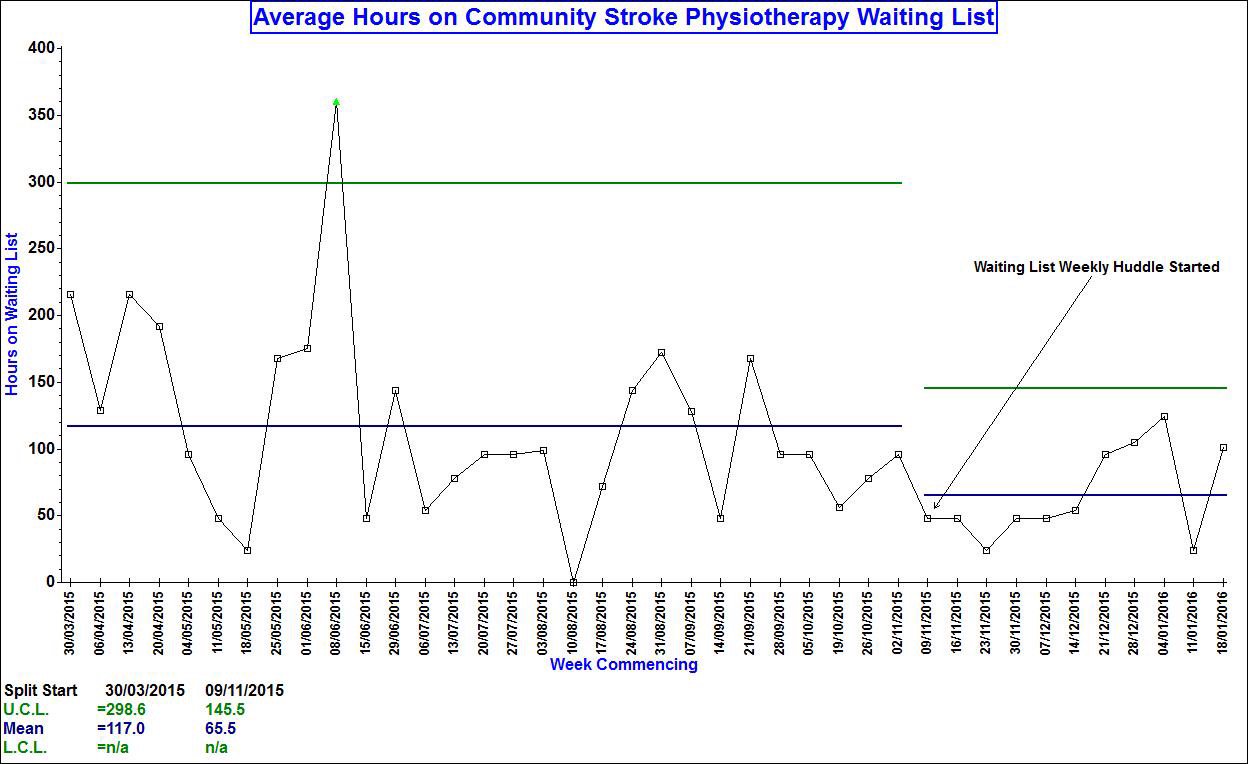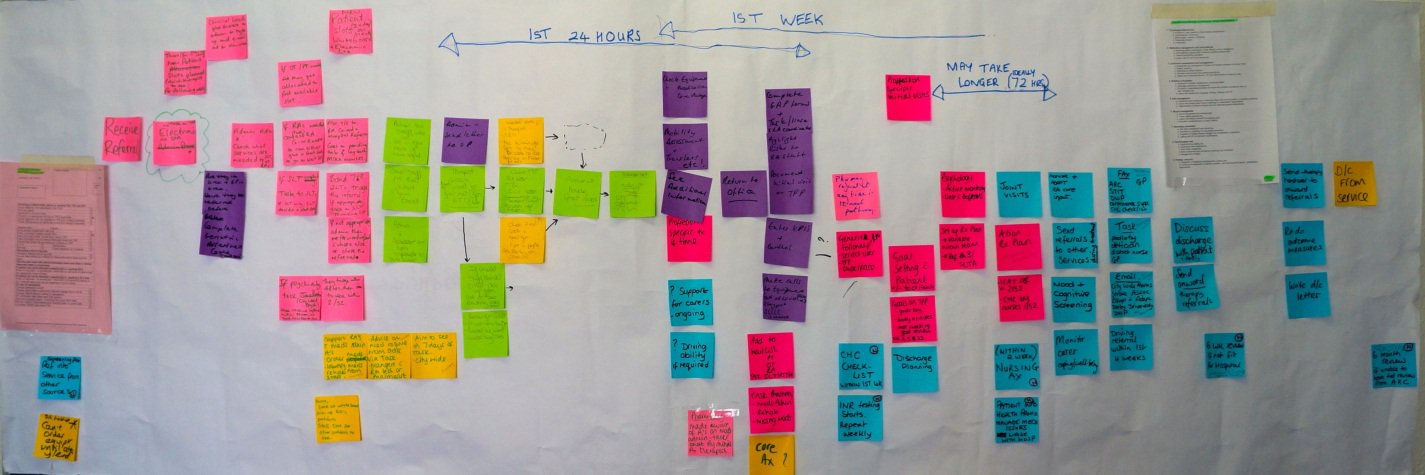Representatives from across the professional groups formed a microsystem team that began meeting in December 2014.
Assessment The 5Ps (Patients, Purpose, Professionals, Patterns and Processes) approach was used to assess the system and highlight opportunities for improvement. The team then worked together to produce a detailed process map of the patient journey which highlighted differences in how staff worked. They felt that this was inequitable for patients and as a result were keen to standardise their work processes.
Also, as the service is limited to 12 weeks, they were keen to minimise delays.
Diagnosis The first theme chosen for improvement was Timely and Equitable Service with the global aim of achieving optimum potential within the 12 week timeframe alongside a positive patient experience.
Treatment One of the areas the team chose to work on was reducing time patients spent on waiting lists as this varied significantly. At the time, there was no defined process in place for therapists picking up patients from the waiting list so the team decided to trial a weekly 15 minute ‘huddle’ in their professional groups to discuss patients who were waiting and match these up with therapists who have capacity to see them. The ‘huddles’ also give staff the opportunity to discuss who is best placed to pick up patients based on geographical location, which has the potential to decrease travel time and therefore increase face to face time with patients.
 What has been achieved so far The team now has a better understanding of their patients and are aware of how to make improvements to the service using the microsystems process. Mapping out the service from start to finish has clarified, for all staff members, how the service currently works. “It feels like we as a team have started to understand the processes more, and have started to be more cohesive in our thinking because of this. Through the microsystems process we have highlighted how much variation there is within ways we work as a service, and our microsystem coach has helped us think about this in an objective, productive way” “By looking at a range of data we have been able to see how we are currently performing which informs us for areas we need to improve. We are realising more that time spent on service improvement is important, as it could improve our service delivery and effectiveness. This in turn will make us more clinically effective and more cost effective and hopefully will improve patient satisfaction and equality of service delivered by the team.”
What has been achieved so far The team now has a better understanding of their patients and are aware of how to make improvements to the service using the microsystems process. Mapping out the service from start to finish has clarified, for all staff members, how the service currently works. “It feels like we as a team have started to understand the processes more, and have started to be more cohesive in our thinking because of this. Through the microsystems process we have highlighted how much variation there is within ways we work as a service, and our microsystem coach has helped us think about this in an objective, productive way” “By looking at a range of data we have been able to see how we are currently performing which informs us for areas we need to improve. We are realising more that time spent on service improvement is important, as it could improve our service delivery and effectiveness. This in turn will make us more clinically effective and more cost effective and hopefully will improve patient satisfaction and equality of service delivered by the team.”Since starting the weekly huddles there has been a significant decrease in waiting times, including a 44% reduction in average waiting time to see a physiotherapist - down from 117 to 66 hours (see chart below). Variation in waiting time has also decreased significantly. The team are continuing to monitor the impact of the waiting list huddle with a view to extending it out to other professions.

